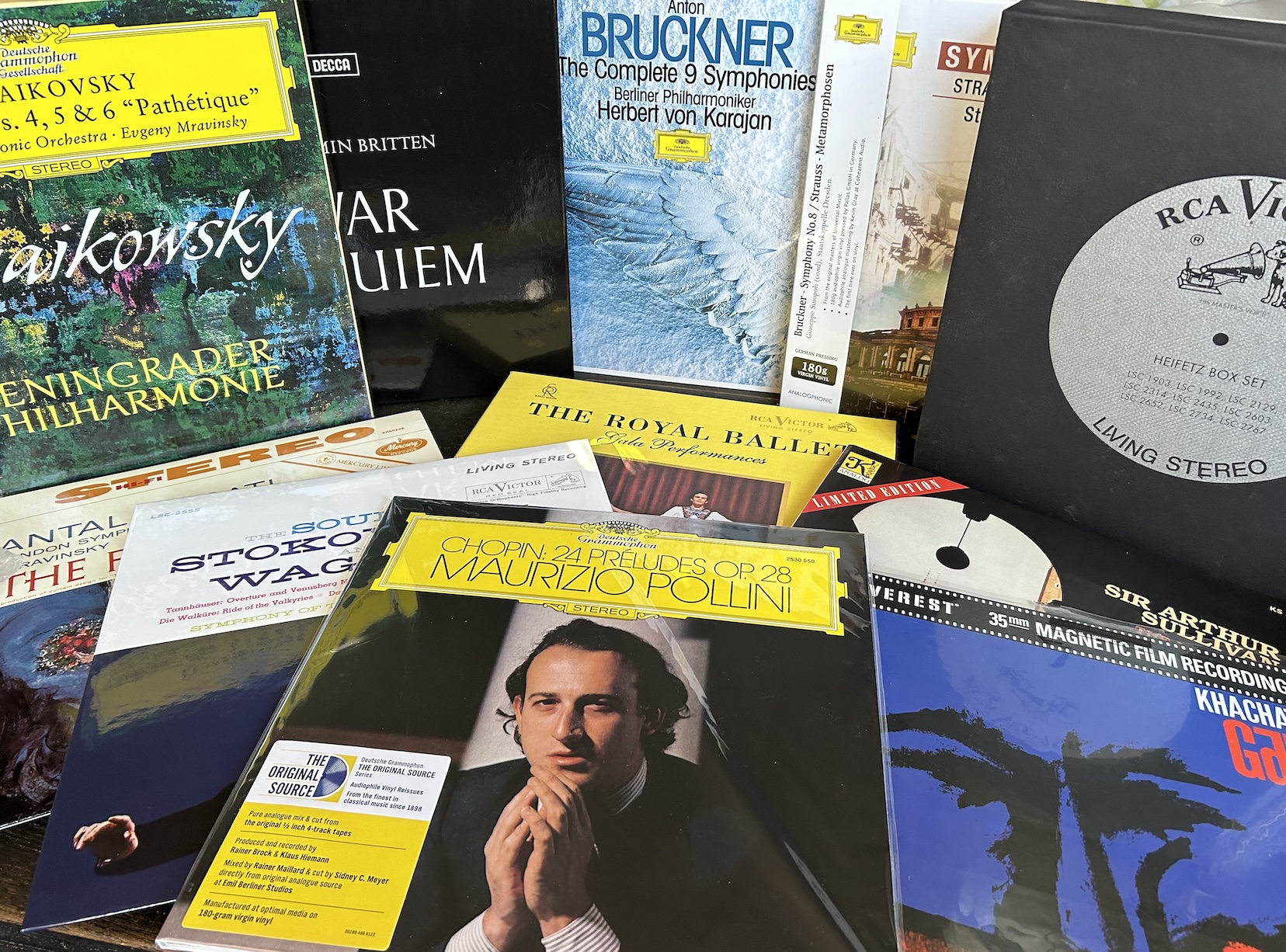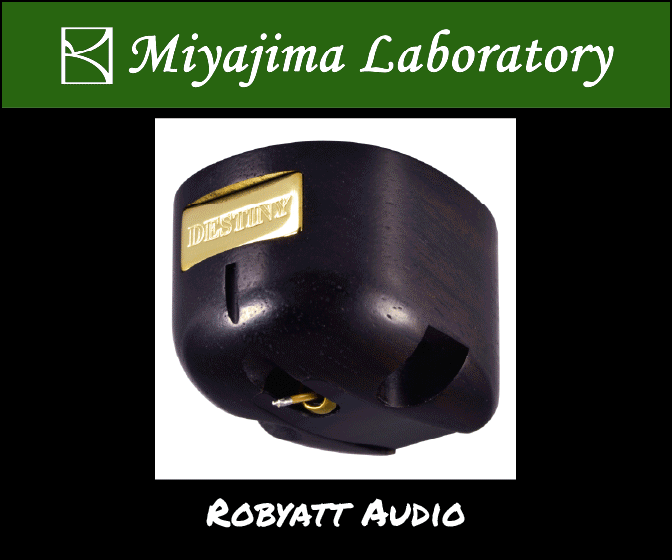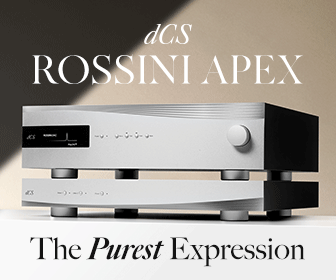Classical Audiophile Vinyl Reissues - Past, Present, and Future: Part 2
An In-Depth Look at Where we've been, and Where we might be heading...
Within the last five years or so, just as the vinyl resurgence got into its stride, labels like Testament and Speaker’s Corner more or less stopped reissuing new classical titles. The newer HiQ imprint of some very desirable EMI titles came and went with its dubiously sourced, ticky pressings, which nevertheless offered an opportunity to pick up rare recordings of EMI’s Golden Age in often very good (if not the very best) sound that would otherwise be financially out of reach for most.
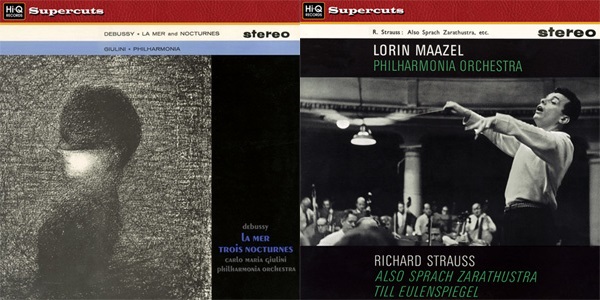
And how about Mercury, which had had a number of superb AAA reissues on Classic and Speaker’s Corner, plus Analogue Productions?
Well, here we have an example of how a label can make severe miscalculations when it comes to embarking on a campaign of audiophile vinyl reissues. A few years ago the Mercury label itself decided to reissue a bunch of its most celebrated titles (including several already done by Classic Records back in the 90s), plus some additional highly-prized and sought-after records that had never been reissued. The only problem is that it was decided that all of these would be sourced from digital files.
Why on earth would Mercury - one of the labels most prized for its vivid analogue sound - make such an unfathomable decision to cut from digital? Goodness only knows (the "shadow" knows this: Robert and Wilma Mozart Fine's son Tom oversaw the last few digitally sourced vinyl reissues cut at MW's favorite Abbey Road.. Tom's relationship with vinyl is "difficult"_ed.)
Several of these new reissues included what could have been terrific box sets - which are still sitting on the shelf at retailers years later.
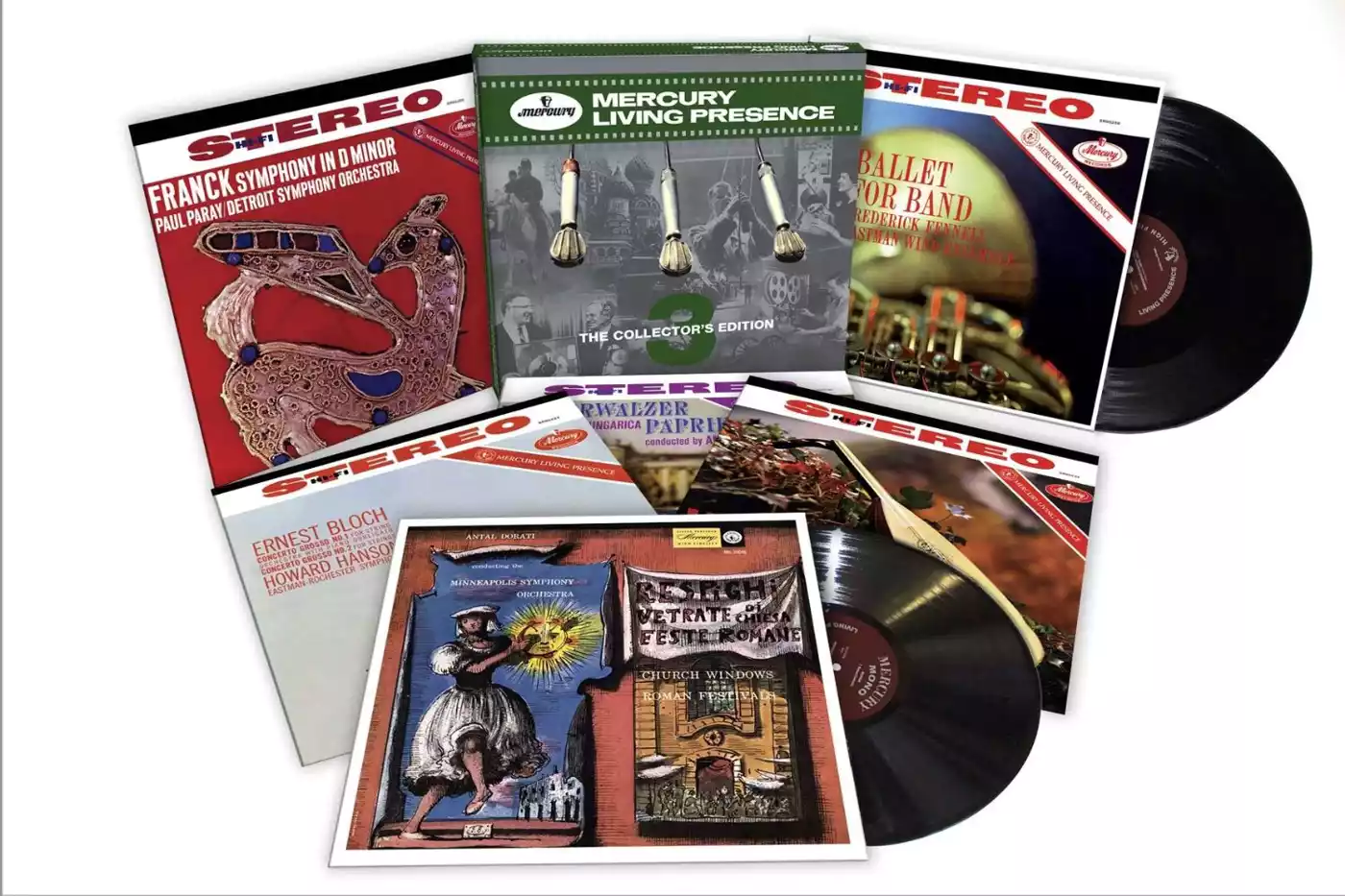 A mouth-watering series of titles gathered together in one of three Mercury Collector's Edition vinyl box sets that came out some years ago - but, alas, all mastered from files (albeit by Emil Berliner Studios).
A mouth-watering series of titles gathered together in one of three Mercury Collector's Edition vinyl box sets that came out some years ago - but, alas, all mastered from files (albeit by Emil Berliner Studios).
Even though these titles were cut by EBS, audiophiles could hear the difference between AAA and sourced-from-digital, and stayed away. The few reviews were measured. To my knowledge, Mercury has kept its archive tapes in good order, so the excuse that the master tapes themselves could not be played doesn’t pass muster.
Or has something indeed happened that prevents AAA cuts? (I welcome informed comments on this topic).
No, I guess it came down to cost/profit margins, and maybe Mercury did okay in the end. But how short-sighted to short-change the one thing that makes your product unique - its incredible sound - just to have a bigger, or at least more reliable profit margin.
(And lest you think I am picking on Mercury, the label is to be commended for its fine CD reissues, especially the recent series of Eloquence box sets which have done an incredible job of preserving the Mercury legacy. It’s just that we classical enthusiasts want the best titles on AAA vinyl!)
But Mercury was not alone. We started to see this mistake being made of opting for digital files over analogue masters (or tape copies of the masters) across the board as the majors like Decca and EMI/Warner started getting into the vinyl game.
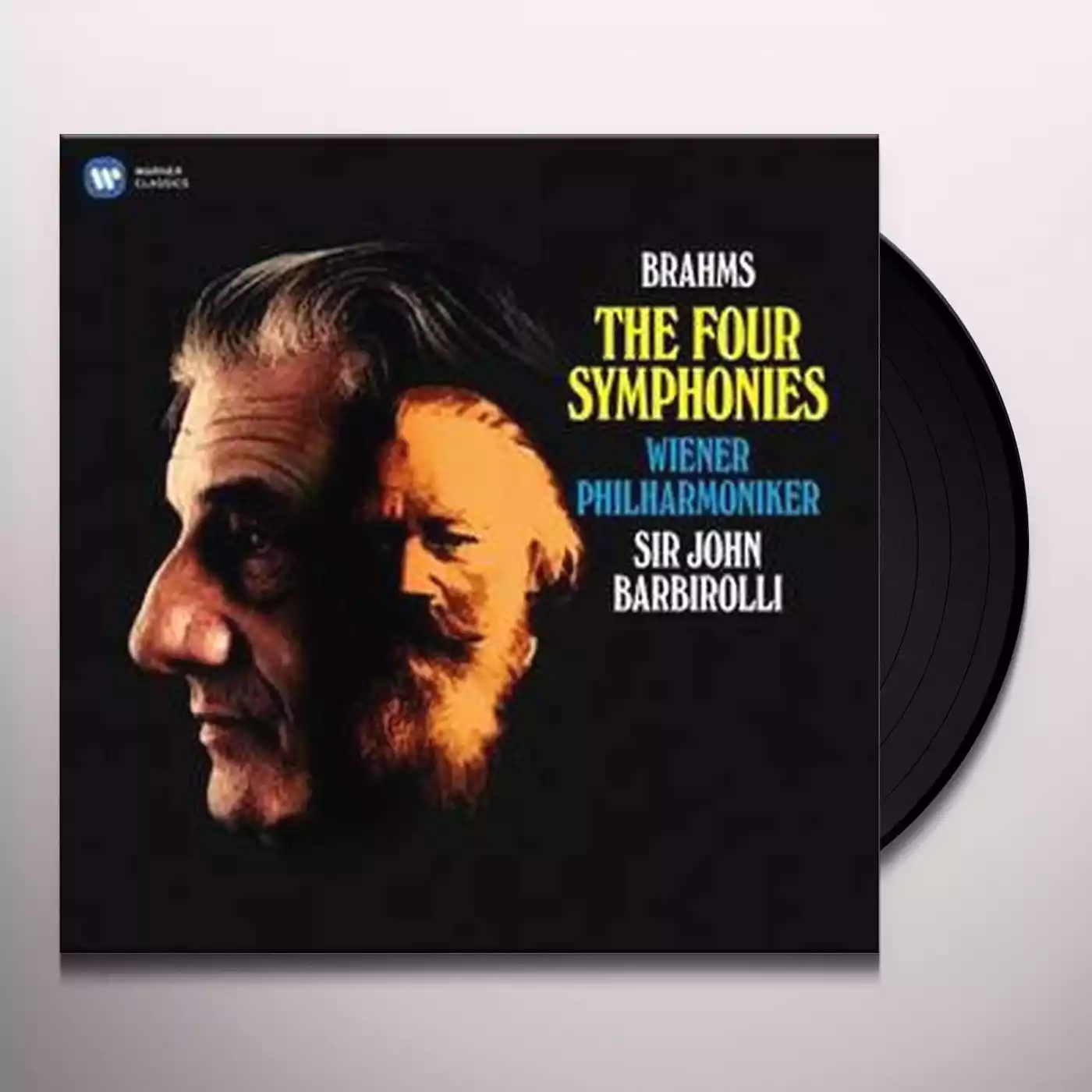 Warner's reissue of Barbirolli's classic EMI set of the Brahms 4 Symphonies on vinyl, cut from files - what a missed opportunity! I bought the remastered CD set instead!
Warner's reissue of Barbirolli's classic EMI set of the Brahms 4 Symphonies on vinyl, cut from files - what a missed opportunity! I bought the remastered CD set instead!
Highly desirable titles from the back catalogue started to appear on vinyl, all sourced from digital files, all mastered by faceless engineers, all utterly forgettable; and, incidentally, costing not much less than the equivalent AAA reissues when the latter were still in print.
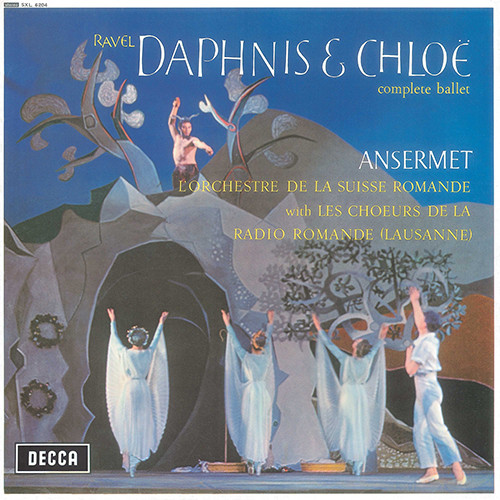 Another digitally sourced vinyl reissue of a classic analogue title - and another missed opportunity
Another digitally sourced vinyl reissue of a classic analogue title - and another missed opportunity
Only DG was making the effort to occasionally hire EBS to master titles AAA (see Part 1) until committing fully with the Original Source Series.
At which point everything changed.
So where does that leave us now?
THE PRESENT
Fortunately, Chad over at Analogue Productions has kept his Living Stereo and other classical releases in print, and long may it be so. These are essential acquisitions for anyone who prizes great classical music in primo sound. (I just wish he would add a few more titles to his catalogue - he’s got the original metal parts from Classic if he doesn’t want to spring for a new mastering… please, Chad, please!)
Of course, in recent years we have also had the rise of ultra-boutique labels like the Electric Recording Company, whose extremely limited AAA editions sell out in a few hours and offer quality which may or may not be commensurate with their exorbitant prices - depending on who you talk to. (Having said that, there have been a couple of titles where if I had had the disposable income I would have taken the plunge - Klemperer’s Mahler Resurrection Symphony being a case in point).
(Please read this New York Times ERC profile in which writer Ben Sisario visited both ERC and my listening space to compare various Martzy pressings and CDs. Then read the outraged comments from hysterical anti-LP space cadets. It's so entertaining!_ed.)
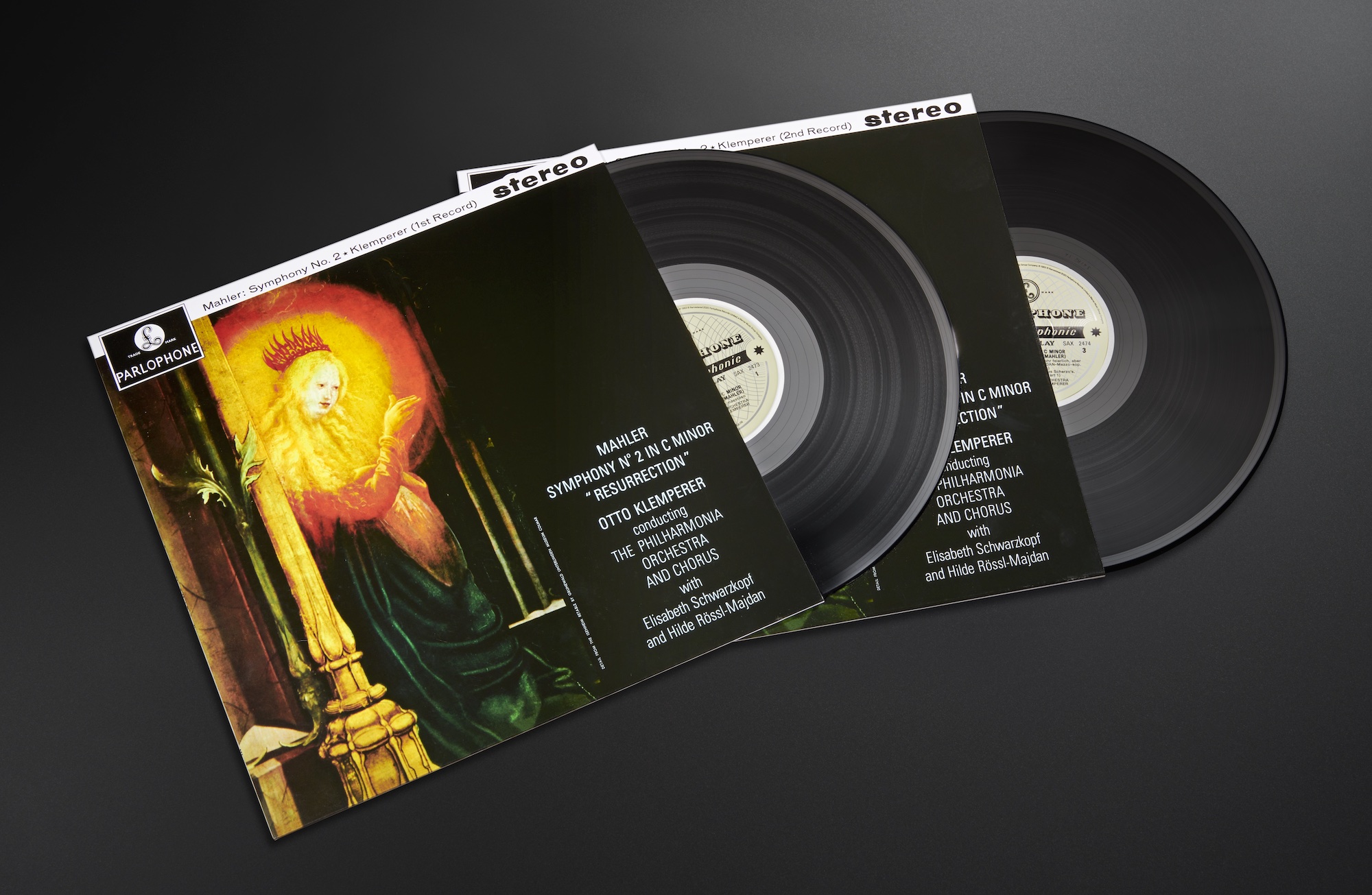
Some other choice ERC classical titles - let the drooling begin...
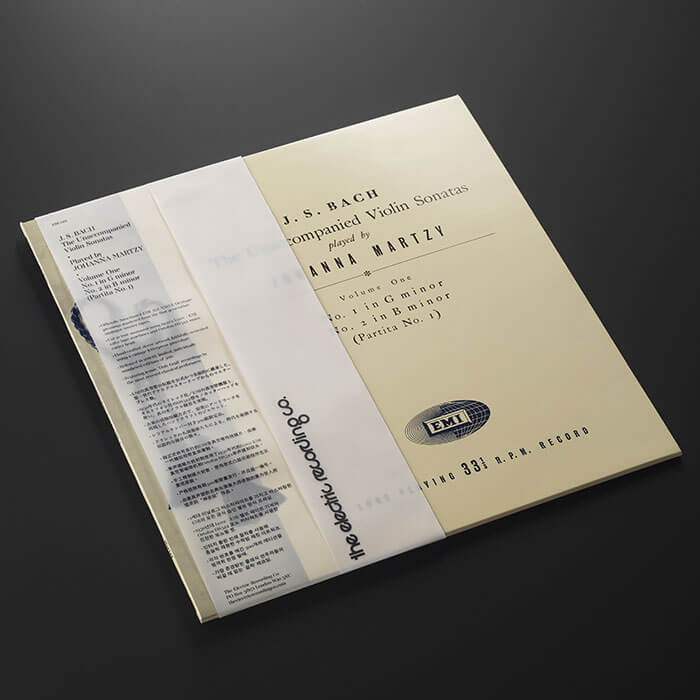
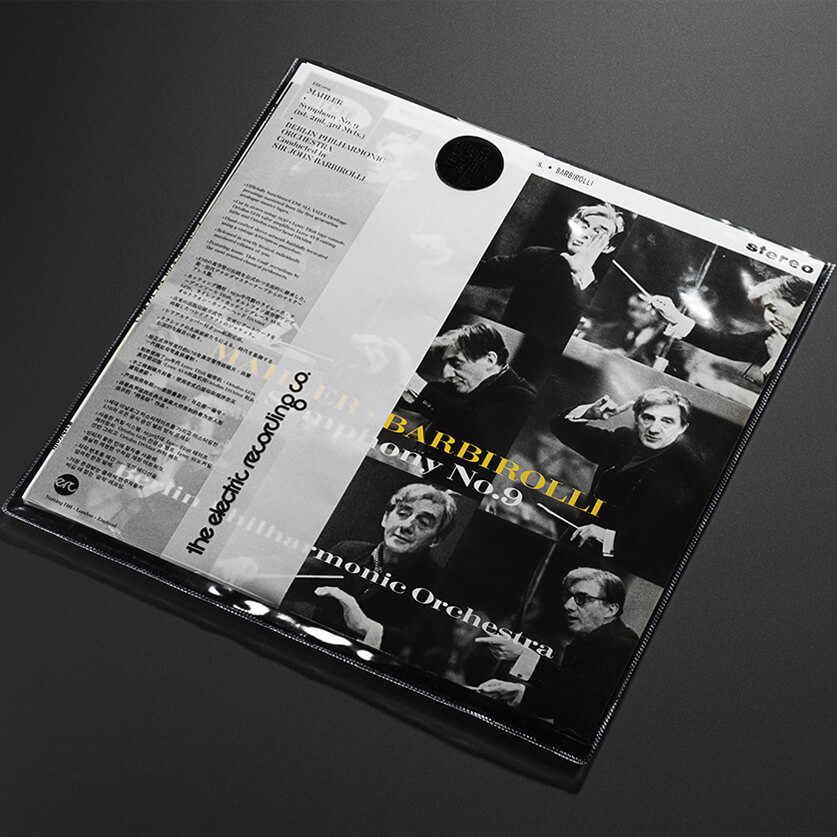
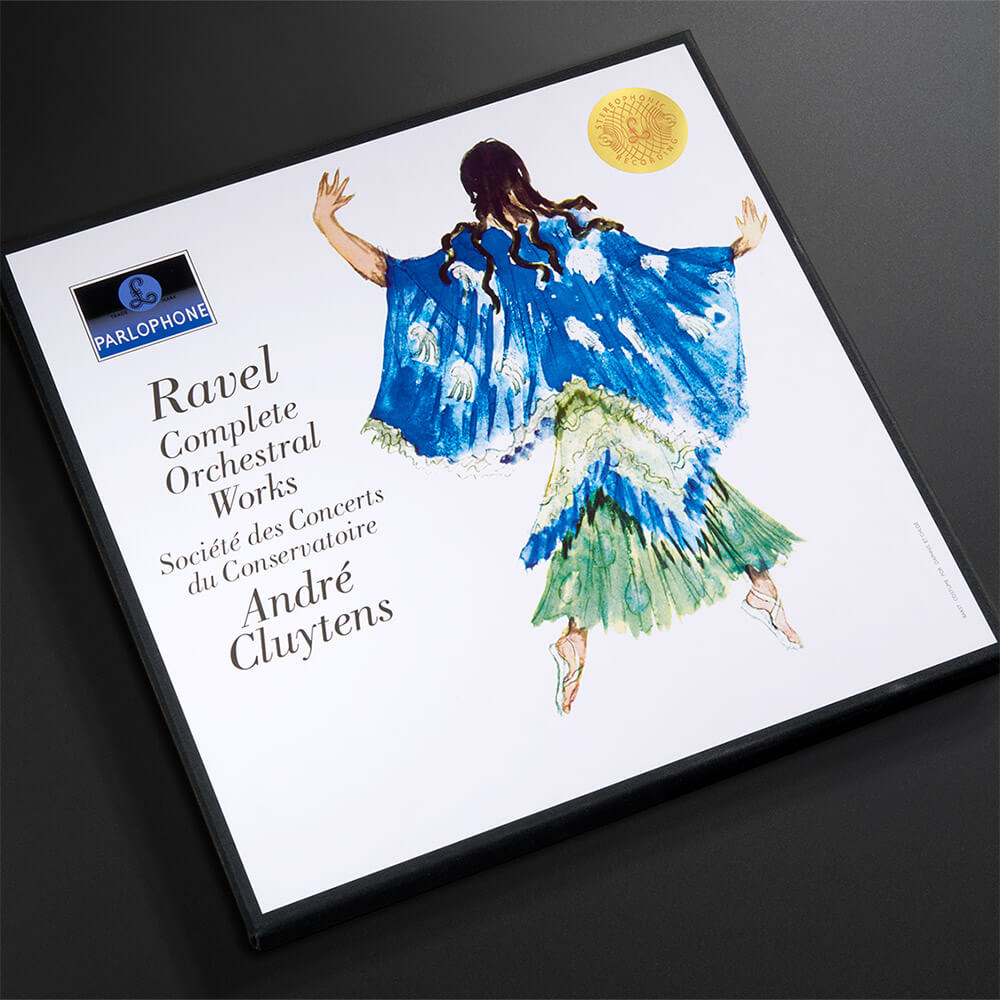 This indispensable set of Ravel - a fine document of mid-20th century French orchestral sound - was also reissued by Testament, well worth seeking out. (Lovers of Ravel's orchestral music will be getting some very, very good news from DG in the near future).
This indispensable set of Ravel - a fine document of mid-20th century French orchestral sound - was also reissued by Testament, well worth seeking out. (Lovers of Ravel's orchestral music will be getting some very, very good news from DG in the near future).
Impex continues to do its thing impeccably, with whatever it releases, but it’s a small company and classical is a tiny part of its remit. (But again I say, “More please!” The Heifetz The Lark reissue was a gem - and it was mono!)
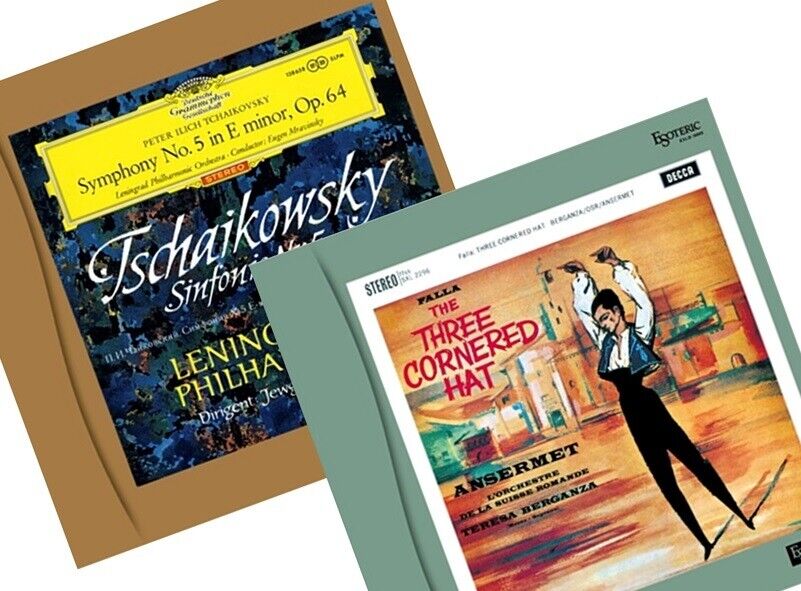
A surprising new development has been a new vinyl reissue series from the Japanese company Esoteric, hitherto best known for its sonically reinvigorated deluxe CD/SACD offerings from the Universal (Decca, DG, Philips) catalogue (which are also reinvigorated in their pricing!). Even though the releases so far are all from analogue’s Golden Age, featuring titles that have been previously been reissued AAA by many of the companies mentioned above, these titles have all been mastered from digital sources, in keeping with Esoteric’s philosophy that digital done right is the equal of analogue. I’ve not heard any of these, but I am sceptical - a scepticism shared by my colleague Michael Johnson in his recent review.
So, until the emergence of the DG Original Source Series, the prospects for classical-loving audiophiles finding high-quality AAA vinyl reissues were not good. With Speaker’s Corner essentially gone, and Analogphonic now, apparently, only cutting from files, we are back to seeking out OGs or OOP AAA reissues on the used market, and scouring the virtual bins at Elusive Disc and Acoustic Sounds for the occasional lingering Testament, Speaker’s Corner, ORG etc.
That had been the situation for a few years. And then the DG Original Source Series exploded onto the market, demonstrating unequivocally how incredible AAA records - mastered and cut with infinite care and attention to detail - can sound.
And I think one of the reason the series has been so successful is the dearth of quality AAA reissues on the market in recent years.
Audiophiles were ready for their classical fix!
So where will we go from here?
THE FUTURE
Regular readers of this site will have noticed that during this same period of time that I have been reviewing the DG OSS releases, I have also reviewed two major - and I mean major - archive vinyl releases from Decca: the Solti Wagner Ring cycle of four complete opera recordings...
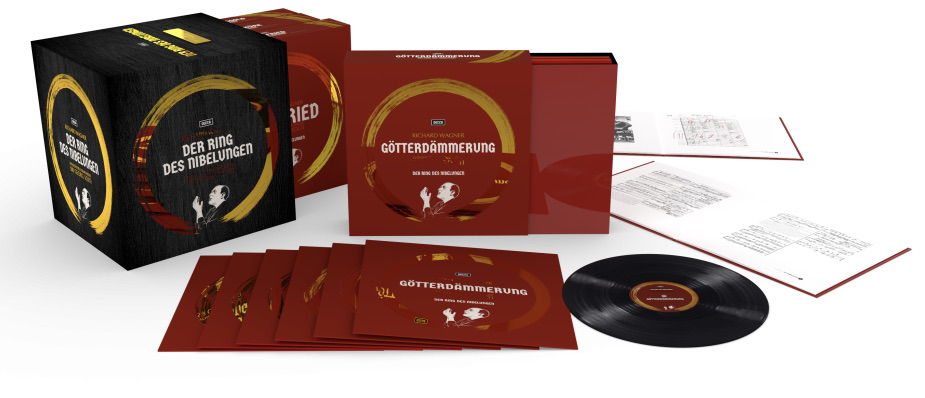
... and the Britten War Requiem.
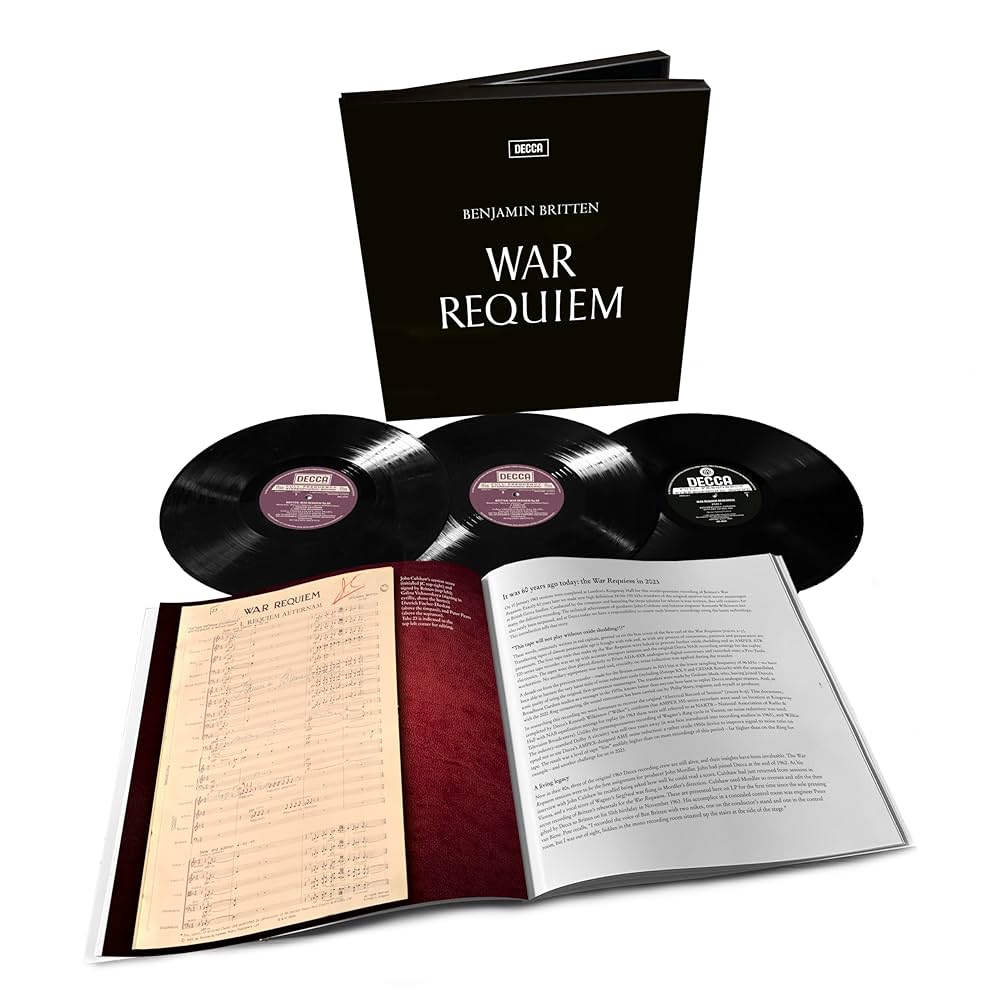
The experience was sobering, especially in comparison to what I was hearing from DG and Emil Berliner Studios. And there are serious lessons to be learned here by any label contemplating a campaign of archive vinyl reissues along the lines of the Original Source Series.
Both the Wagner and the Britten represent the peak of a catalogue which ranks with RCA Living Stereo, Mercury, EMI at the very pinnacle of recorded sound and performance in classical music - or, indeed, any music. Decca has long been my own personal favorite label, and I still actively collect OG pressings from across all its eras. There are relatively few sonic duds in this enormous catalogue. If you’re on a budget you can even opt for later Dutch pressings with some peace of mind. (For cheaper versions of the late 1950s/60s catalogue, always look to see if there’s an Ace of Diamonds version - they‘re mostly cut from the same metalwork as the expensive OGs; Eclipse reissues are also bargains. And, of course, there are the UK-cut London versions).
The Solti Ring and the War Requiem have long stood in the pantheon of my own favorite records, of any genre. They represent the peak of the recorded arts and sciences.
So imagine my dismay as I dropped the needle on both reissue sets of LPs and was left - unmoved.
Go back and read my detailed reviews (the Wagner here, the Britten here), which in both cases favored the SACD releases drawn from the same digital files as the records, in terms of communicating musical detail, sonic splendour, and the emotional content and connection of the original masters. (In retrospect I think my gradings for the LP versions might have been a mite too generous).
I know that extensive restoration work had to be done on the master tapes for the Solti Ring in both the analogue and digital domains, so cutting from a file was unavoidable. Not so sure that was also the case with the Britten. But - and this is a very important question - if the SACDs sound so good, why do the LPs come up short?
Here we touch on another important issue. I do not think the success of a vinyl reissue of an analogue recording is necessarily down to just whether it was cut from an analogue or digital source, although that is significant. It’s also down to who does the mastering and cutting, and what kind of equipment is in their mastering chain.
Did the War Requiem have to be cut from digital, or was it simply that - because Decca chose Abbey Road Studios to master and cut the records, and Abbey Road only masters and cuts from digital (Abbey Road can and does cut AAA_ed.) - then that precluded a AAA cut? If that was indeed the case, what an unfortunate decision.
The Solti Ring was also cut at Abbey Road. (Head in hands…)
Here’s the million dollar question. Accepting that both had to be cut from files, might they have sounded better if they had been mastered and cut elsewhere? For example, Decca had to know that Emil Berliner Studios were figuratively (if not literally) down the road, and that they had already mastered and cut many titles from the Decca catalogue for Analogphonic - even some from digital files. And done it very well.
Let me be completely clear here. I am not one of those people who instantly dismisses the possibility of creating excellent sounding vinyl if it is mastered and cut from digital. I just think that when you have the opportunity to cut AAA from the analogue master tape (or even a tape copy of the master tape, as has been the case - I believe - with many of the Speaker’s Corner reissues) the chances are it’s going to sound noticeably superior than a record cut from a file.
But I also believe there’s more to a good mastering than the nature of the source. Some mastering engineers are simply better than others, and their various mastering chains also simply sound different. If for the Ring and the War Requiem Decca had gone with an established master of their craft like Kevin Gray, Ryan K. Smith, Bernie Grundman or Rainer Maillard and Sidney Meyer at EBS, even though the LPs would have been mastered and cut from digital, would the final records have sounded better?
I strongly suspect they would have.
Or was Decca merely seduced by the “Abbey Road” imprimatur of supposed excellence? Could be, alas.
If Decca had chosen any one of these other mastering houses, I - and many other lovers of the Solti Ring and the War Requiem - might well have avoided the sonic disappointment of these incredibly important vinyl reissues, which were otherwise models of top-notch presentation and accompanying material (apart from the ghastly new artwork for the Solti Ring; why on earth didn’t Decca stick with the evocative imagery of the original releases? The Japanese SACDs wisely reverted to the original LP art. For reissues, labels need to do what DG does in respecting the original but also giving it a nice make-over). What a missed opportunity. (And I still see that lonesome copy of the Das Rheingold vinyl reissue sitting in the bins at Amoeba, literally years later).
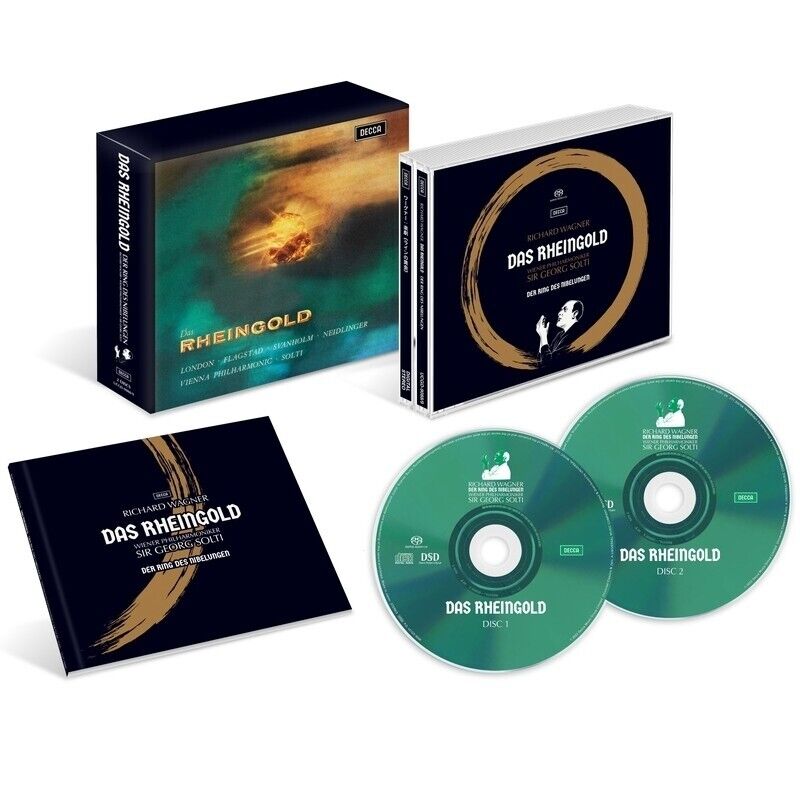 The Japanese SACD version of the new remastering of Das Rheingold. Note the use of the original album artwork on the outer case, keeping the new artwork for the interior CD case.
The Japanese SACD version of the new remastering of Das Rheingold. Note the use of the original album artwork on the outer case, keeping the new artwork for the interior CD case.
At least those of us with SACD players can spin those SACD versions - they sound terrific. But to be honest, when I listen to these recordings in the future, I will mostly be dropping the needle on my original wide-band pressings for that ineffable je ne sais quoi that only AAA mastering and cutting provides.
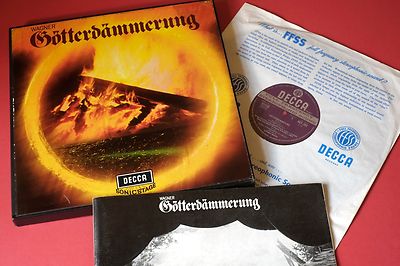
There is a reason why I am giving Decca a really hard time here. It’s because I would be amazed if Decca, which, like Deutsche Grammophon, is part of Universal Music Group, isn’t eyeing the success of its label-mate’s Original Source Series and contemplating getting into the audiophile vinyl reissue game. It absolutely should be considering it. Decca would be mad not to. BUT - and it’s a huge BUT…
The reason why the Original Source Series has been so successful is it has wrung every ounce of sonic goodness out of the master tapes. No halfway measures. And it has prioritized keeping everything in the analogue domain. No digital steps, even when it meant spending much more money to modify the equipment so as NOT to have a digital step.
To my knowledge, Decca, unlike DG, never experimented with quadraphonic sound back in the day, so their master tapes lack those additional ambient tracks which lend the Original Source Series that wonderful 3-dimensional quality.
But the Decca recordings were superb in their own right - they continued to set an industry standard long after RCA and Mercury had faded. There is an enormous catalogue of incredible recordings that have never been reissued by anyone, plus all the usual much sought-after suspects: yes, I believe Ansermet, Solti & co. could get the AAA treatment one more time. But Decca, if you have to go digital for technical reasons (no others are excusable), please use any quality mastering outfit other than Abbey Road. They have a terrible reputation amongst those who really listen to this stuff.
So who else is out there with an amazing catalogue ripe for AAA vinyl reissue? And who has quadraphonic records in their catalogue? EMI/Warner, CBS/Sony, and CBS/RCA for starters. The EMI 70s catalogue in particular hits a real sonic/performance sweet spot for this listener. Just imagine all those incredible records by André Previn and the LSO, Adrian Boult and the LPO, Louis Frémaux and the City of Birmingham SO, Charles Groves and Paavo Berglund - for starters - mastered and cut by the folks at Emil Berliner Studios! I would never leave the house!
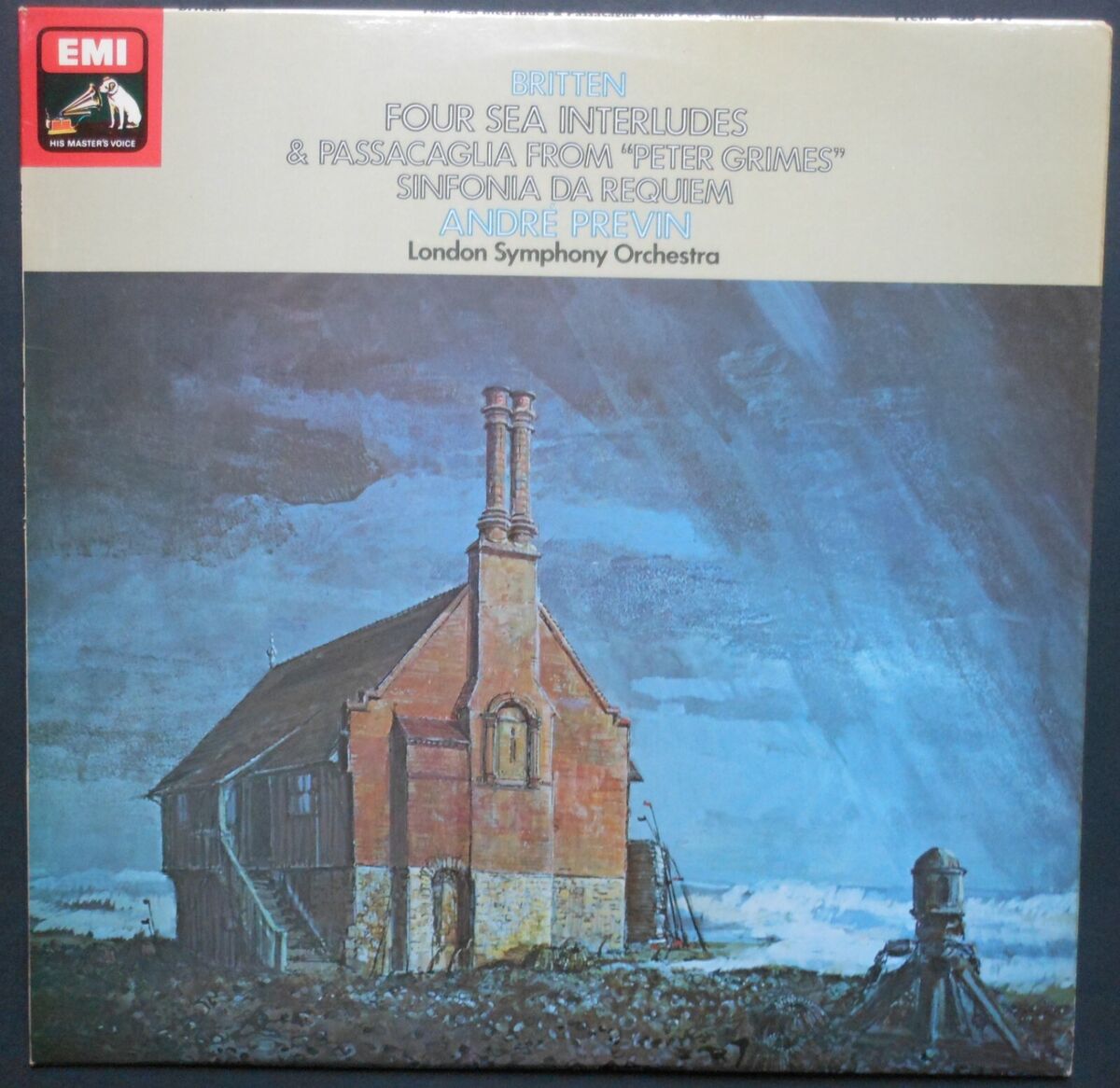
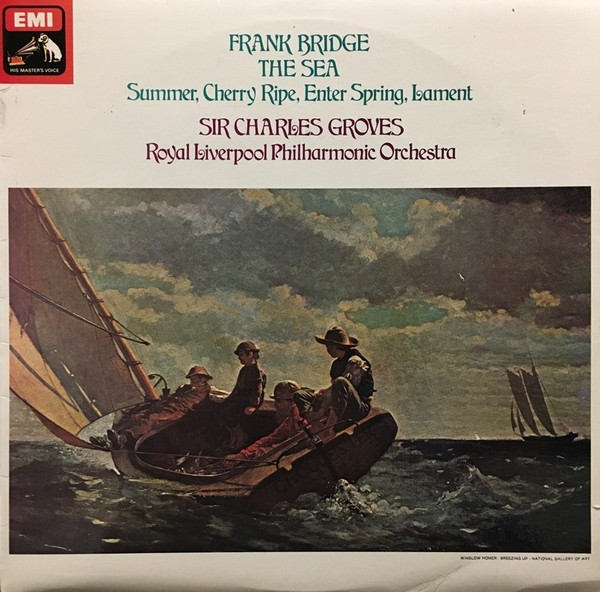
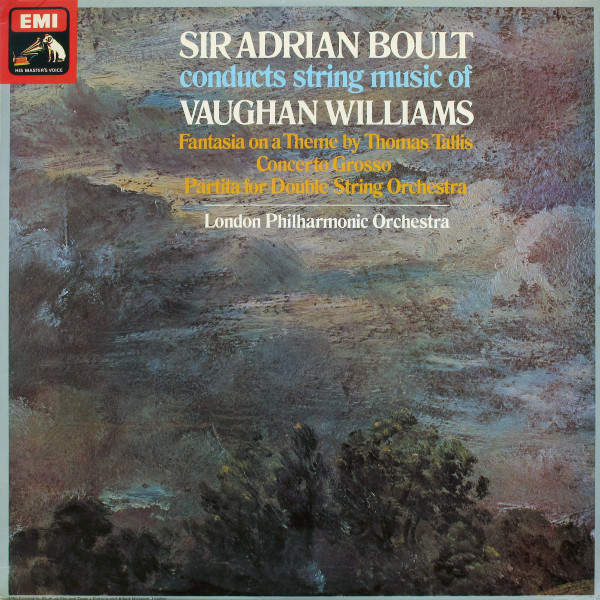
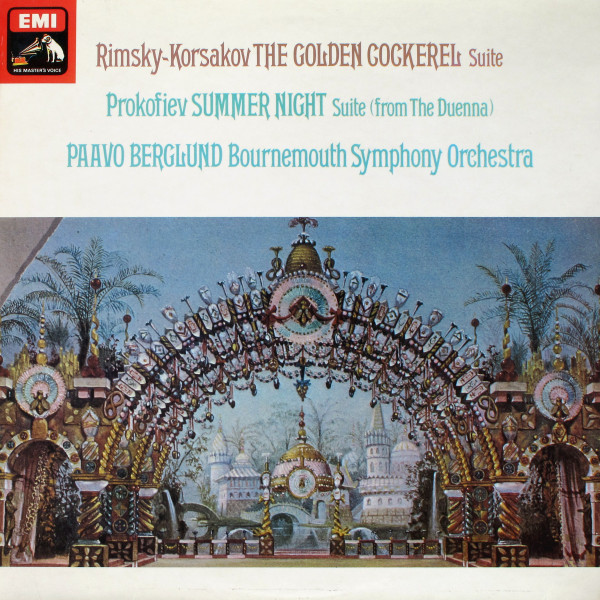
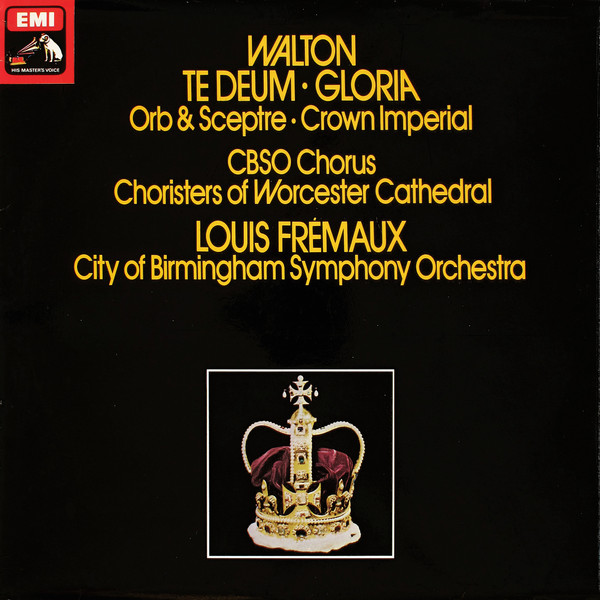
The Dutton Vocalion label has been quietly releasing exquisitely remastered CD/SACDs in stereo and surround sound of choice titles from the CBS and RCA quadraphonic catalogues, including titles from the legendary RCA Classic Film Score series. Imagine any of these given the EBS treatment for new AAA vinyl. Wow!
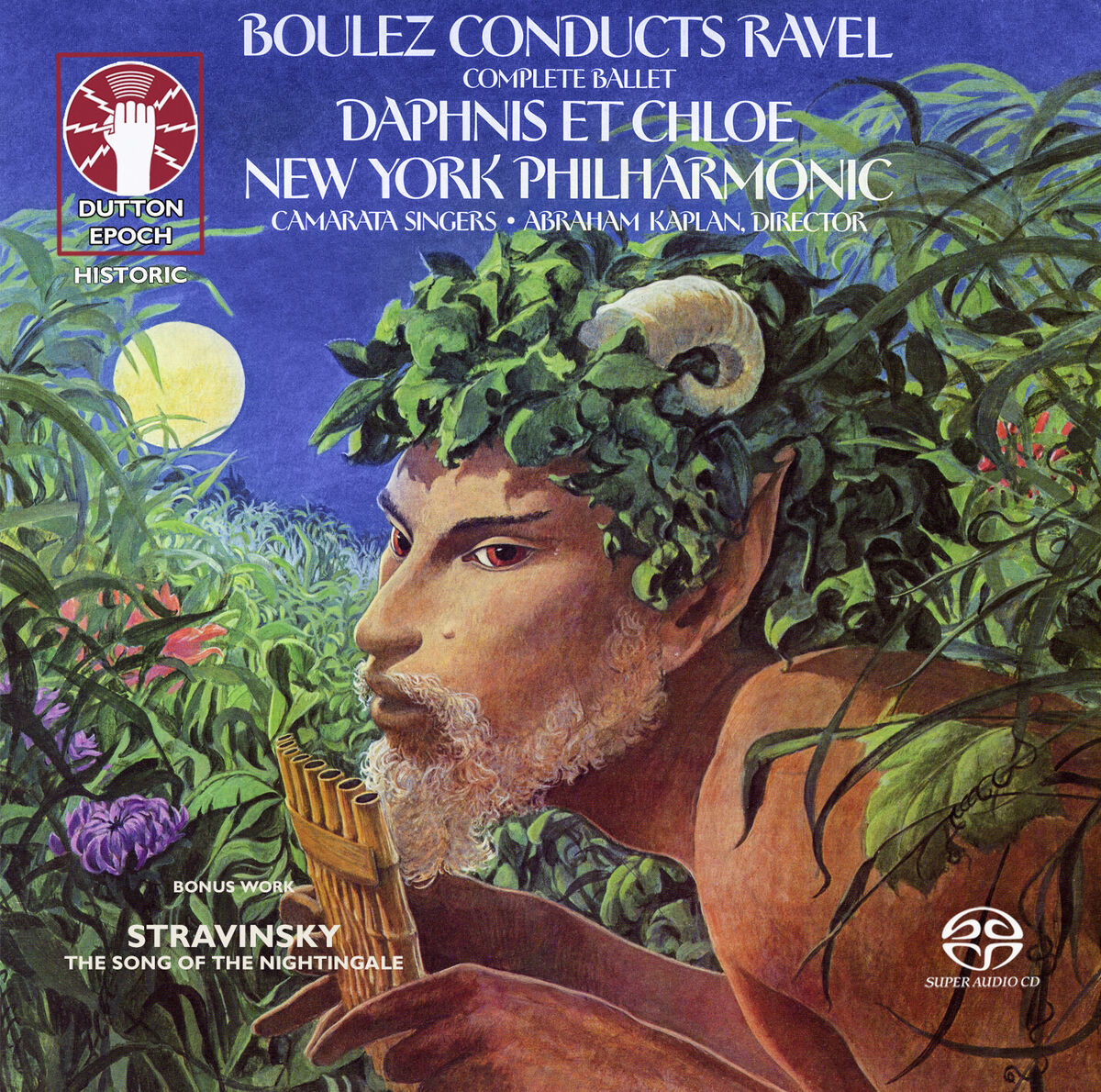
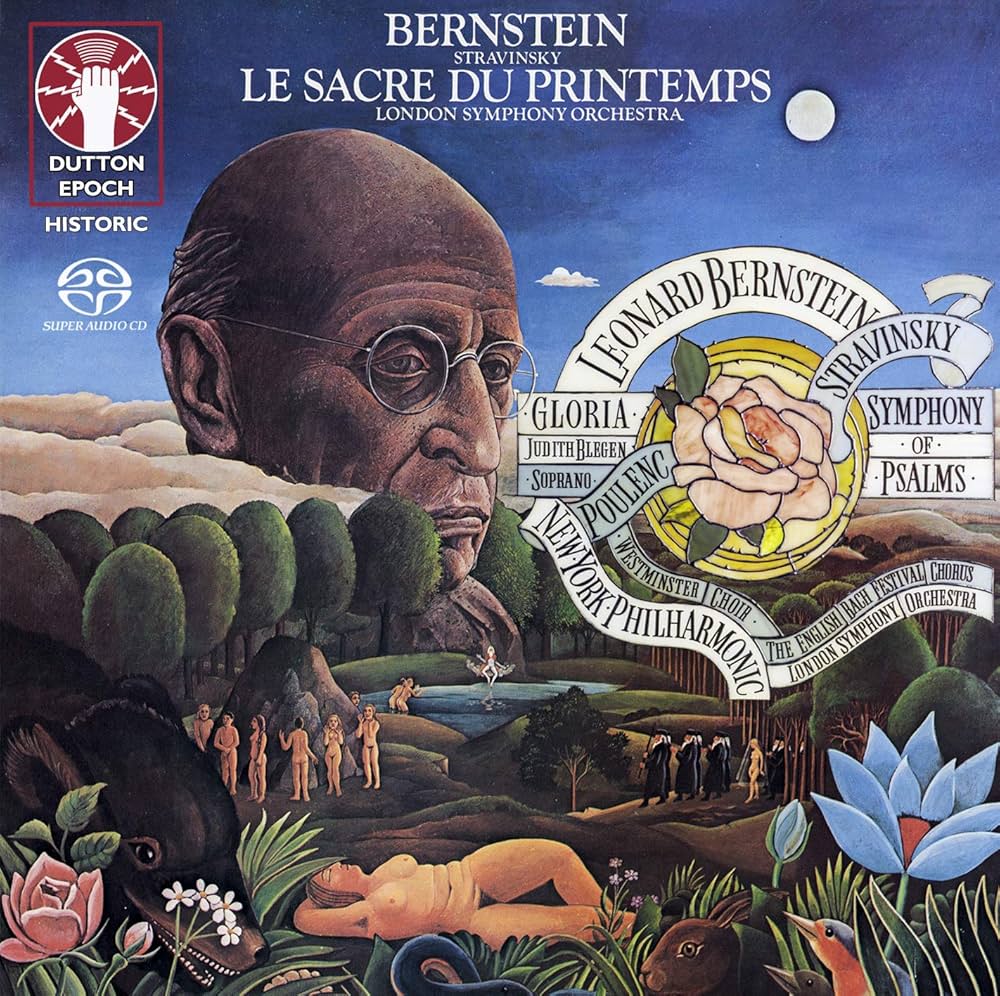
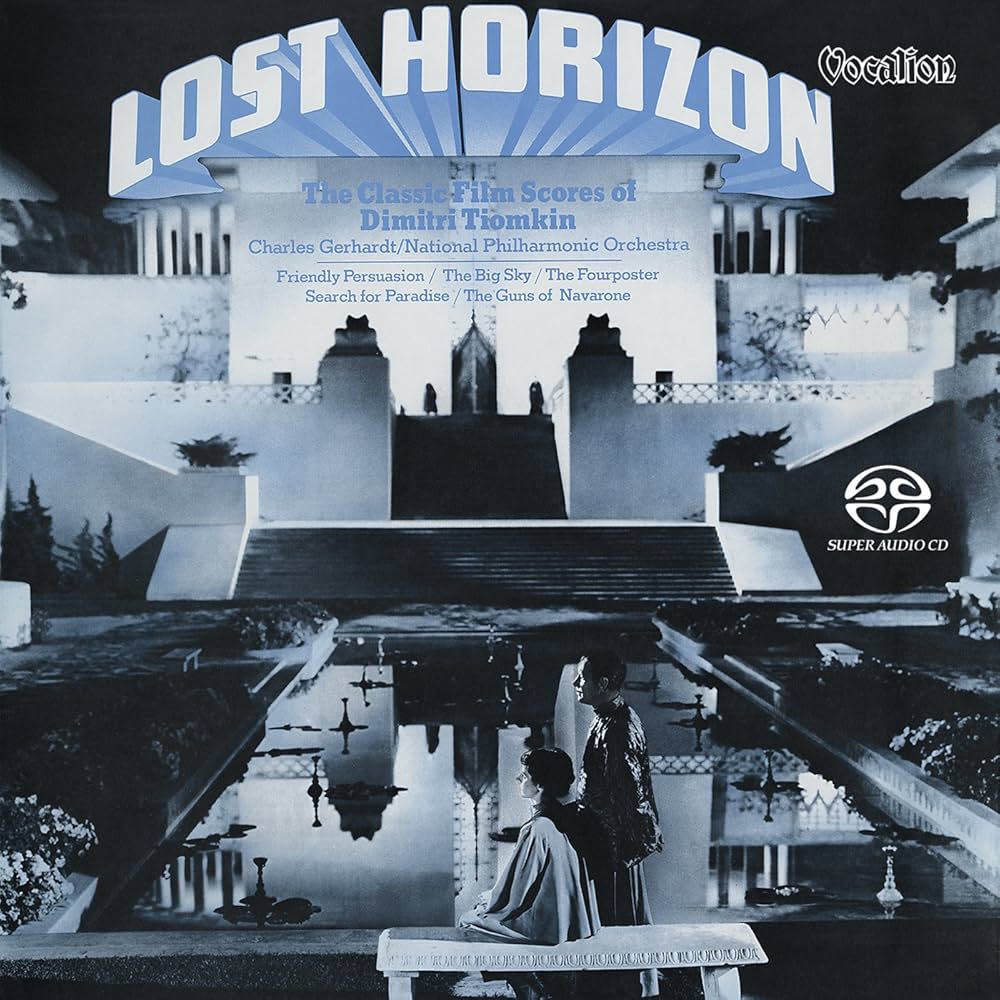
My personal first choice picks for AAA vinyl reissue from the RCA Classic Film Score Series:
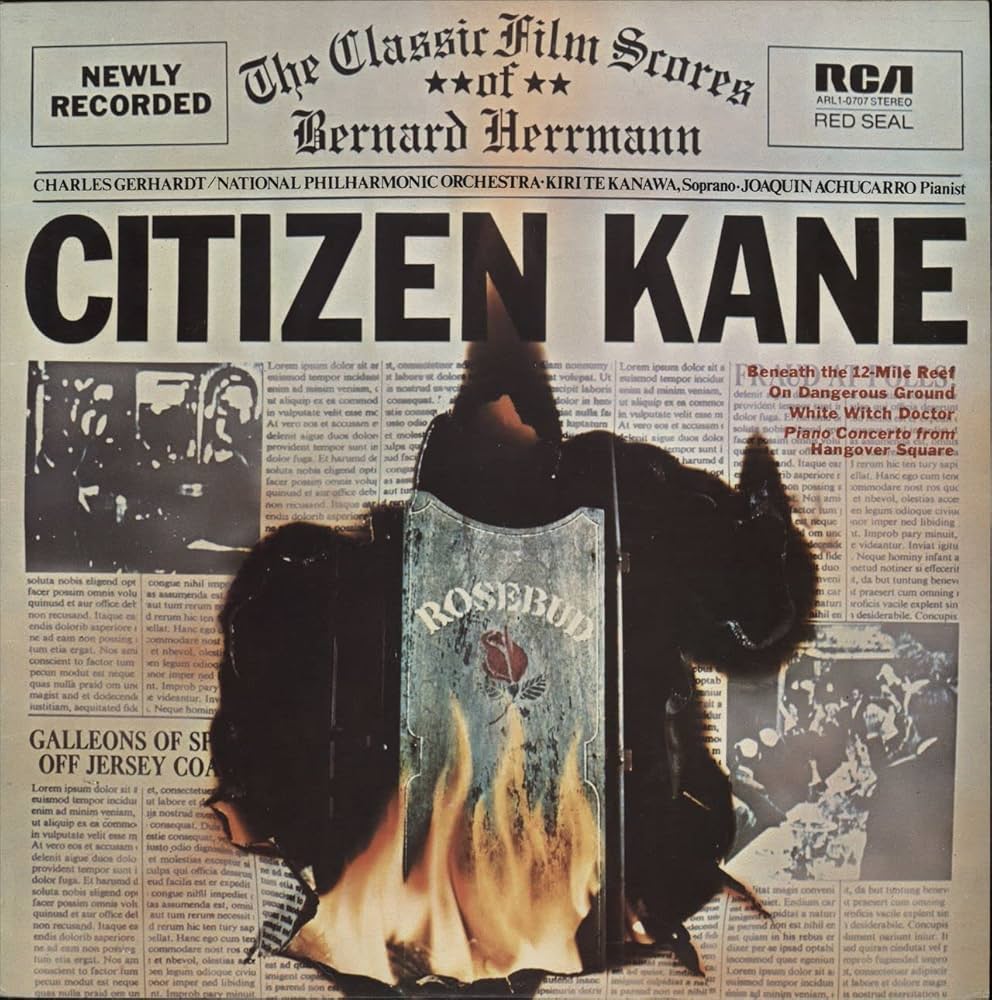
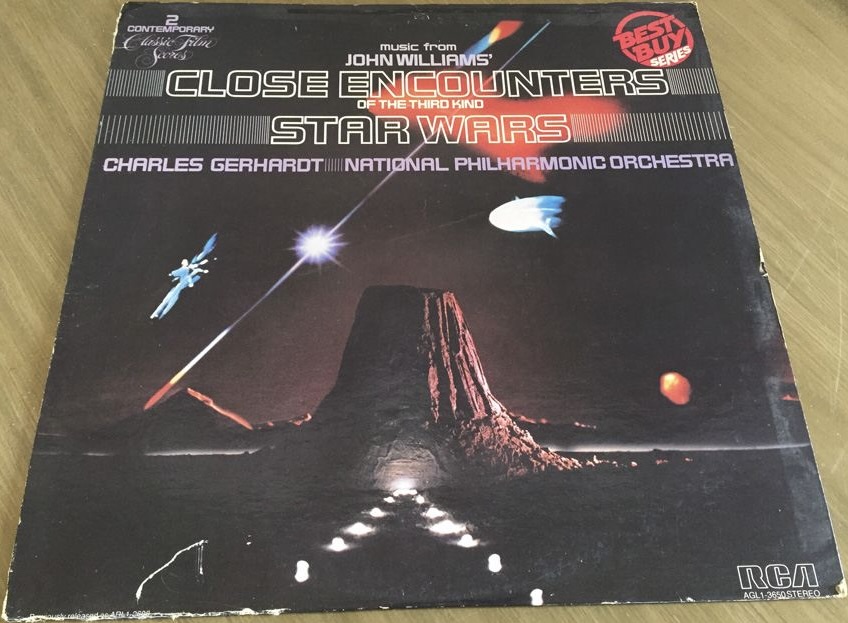 The sound and performances on this John Williams album are better than the audiophile classic from Decca by Zubin Mehta and the Los Angeles Philharmonic, IMO. Also, the Close Encounters selection is somewhat unique, basically presenting the last 20 minutes of the film's score complete, thus incorporating some of Williams most experimental composition as well as his most soaringly melodic.
The sound and performances on this John Williams album are better than the audiophile classic from Decca by Zubin Mehta and the Los Angeles Philharmonic, IMO. Also, the Close Encounters selection is somewhat unique, basically presenting the last 20 minutes of the film's score complete, thus incorporating some of Williams most experimental composition as well as his most soaringly melodic.
(A note of caution here: as of writing this article it is not clear to me exactly what kind of “quadraphonic” tapes many of these are - research is ongoing. Are they essentially stereo recordings with ambient tracks, like the DG titles, or dedicated surround recordings with directly miked instruments in every channel? That latter approach maybe would not work for the kind of discreet mix afforded by the DG Original Source process. But hey - carefully judged stereo mix-downs would sound awesome done AAA too!)
IN CONCLUSION
Bottom-line plea to any and all of these classical labels which might be contemplating taking the plunge into the wonderful world of audiophile vinyl reissues…
Please don’t cut corners. Please don’t cheap out.
Spend the money. Hire the right people. Invest in the right equipment.
Master and cut AAA if at all possible.
Respect the supreme engineering skill and musical excellence that went into creating those priceless master tapes sitting in your vaults. They represent decades of musical and recording history that deserve nothing but the best.
And, if you’re going to do the job at all…
Do the job properly!
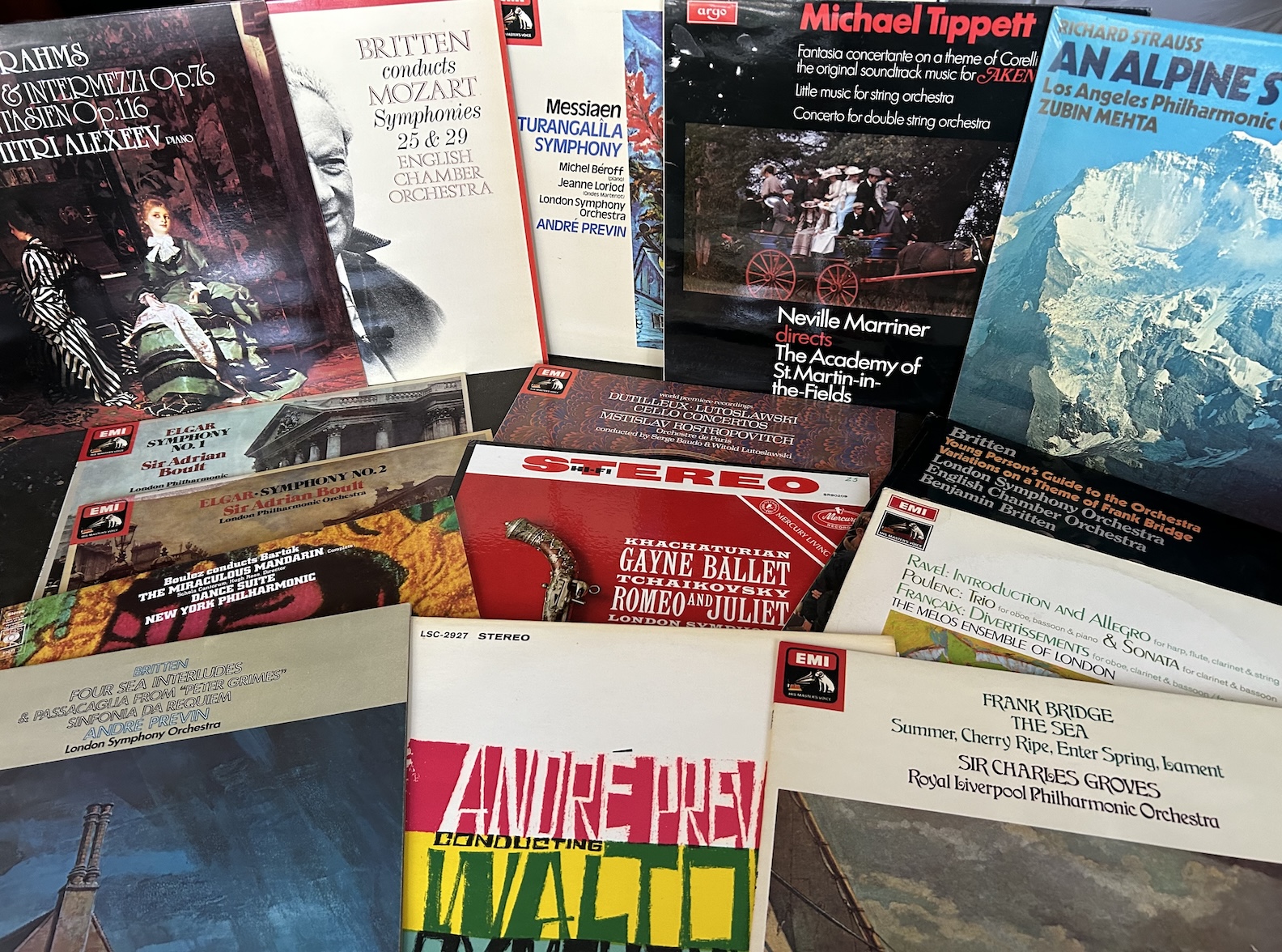
In the following videos I dive into my collection and discuss some sensational-sounding records that would be great candidates for audiophile AAA reissue:


